Technology Network
STW has always been strongly associated with research organisations and universities in leading research and development partnerships. We are actively involved in experimental research in all relevant fields.
In particular, we cooperate with the Fraunhofer IVI within the framework of the Machine Automation Lab. In recent years, several innovative projects have been launched or implemented as part of this cooperation. In all our research projects, the focus is the application-related use of newly developed technologies and the automation of work processes. From these projects we derive which technologies are ready to be used in mobile machines and which features future STW products must offer in order to provide machine manufacturers with the greatest possible benefit for the automation of their machines. We are currently involved in the following projects:
Research Project MANNHEIM-KI4BoardNet
In the research project "Integral agile E/E development for fused and standardized power and data onboard networks" - KI4BoardNet for short - 22 partners from research and science as well as from the electronics and user industries are working under the coordination of CARIAD experts to develop new development methods for efficient onboard network development.
KI4BoardNet focuses on the development of architectures, components and design tools for the vehicle electrical system of the future. Agile and AI-supported design processes as well as maximum automation in the development and production of on-board networks are to be jointly researched and implemented. Intelligent zone concepts enable the required computing power in the vehicle to be distributed among a small number of control units (zone controllers) and the central computing unit. The vehicle electrical system itself thus becomes an intelligent vehicle component. New key components in the area of connectors/cables/power and data concepts as well as sensor/IC/actuator/controller algorithms up to procedures for fault detection and redundancy available in zones are being developed for this purpose. The project results are illustrated by a vehicle demonstrator.
The German Federal Ministry of Education and Research (BMBF) is supporting the KI4BoardNet project under grant numbers 6ME0763-16ME0784 as part of the funding announcement "Electronics and Software Development Methods for the Digitalization of Automobility" (MANNHEIM).
MiProcess2Twin
In the process of digitization strategies in recent years, an IIoT infrastructure has been created on construction sites on the one hand, and on the other, approaches and methods to generate optimal scheduling, sequencing and resource deployment planning based on computer-aided simulations and algorithms. The combination of IIoT and AI for near-real-time, digital mirroring and decision support of construction site processes is missing.
The research project will develop approaches for automated collection and model-based processing of reliable construction process data and simultaneous optimization of construction quality and resource consumption in a digital twin. In particular, a continuous integration of machine and construction process data into an intelligent, digital twin for online optimization for construction and information feedback into the construction process will be implemented. The digital twin should have a high degree of interoperability and thus satisfy the diversity of construction processes and machines used.

Research Project OpAI4DNCS
Complex, industrial control systems are often heavily dependent on human experience and intuition. The best possible control of machines is of crucial importance for their efficient use. Although AI methods offer the potential to emulate human knowledge and thus make it usable, they often fail in practical application due to complexity on the one hand and the distributed architecture of industrial control systems on the other. OpAI4DNCS explores the use of AI at the control level to accelerate set-up and increase the efficiency of operation, especially for inexperienced machine operators, using the example of complex drilling rigs for construction, and their hydraulic subsystems.
To this end, firstly, adaptive, intelligent, learning control systems on a multi-agent basis (MAS) must be investigated and more closely coupled across supply boundaries in order to reduce dead times. Secondly, the systematic collection and use of human knowledge and experience ensures transparency and safe machine operation even in borderline situations.
A platform for the practical, industrial design and application of shared control approaches, between machine operator and MAS, is to be developed and established for drilling rigs in the construction sector.
Research Project Safe20
In the years to come, the automation of transport tasks within self contained depots (logistics centers, factories, ports, airports, etc.) will play a major role economically. The goal of the SAFE20 government funded research project is the development and implementation of a holistic safety concept. The concept shall for the first time, allow regular operation of fully automated vehicles in depots at a minimum speed of 20 km/h, in mixed operation. The autonomous vehicles are not considered in isolation, but a so-called automation zone is set up within the depot.
In this zone, safety-promoting information will be collected and made available to the vehicles in real time. The project provides legally sound, safety-oriented requirements for the overall system, consisting of vehicles and depot automation zone, and for the technologies used, including sensors, actuators, control devices, software and algorithms, etc. The developed safety concept will be implemented and validated in continuous operation under real conditions, with up to three vehicles, and be further developed based on the experience gained. In addition, technology gaps, for example in sensors, algorithms, digital real-time image of the automation zone etc., will be identified and closed.
Machine Automation Lab
The Machine Automation Lab (MAL) is a laboratory run jointly with the Fraunhofer IVI. Since 2019 we have been working together with the institute's scientists on new automation technologies that will find their way into mobile working machines in the near future.
A good example of this cooperation is the integration of an open source software for automated control stations (helyOS) into STW products. This is used to monitor and coordinate a fleet of machines (e.g. a swarm of field robots or warehouse logistics robots) completely without human interaction. A modular approach to coupling and integrating further automation capabilities makes helyOS a very comprehensive and flexible control center system.
STW is working on integration of such control center solutions on its products, such as control units and telemetry modules, so that the integration of machines into automation applications is as straightforward as possible. At the same time, STW will use the cooperation to test its own hardware, such as the High Performance Platform (HPX), which enables the extensive use of complex algorithms, for example object detection.
Research Project AMMCOA (complete)
The operation of construction and agricultural machinery is subject to particularly high demands on efficiency, precision and safety. Automated and, in the future, autonomous operation are important concepts, the implementation of which can be decisive for the future viability of the machines involved. The operation of construction and agricultural machinery differs in various respects from "autonomous and connected driving" in traffic on digitalized roads, and a separate, but coordinated, consideration of these applications is necessary.
Special characteristics of construction and agricultural machinery operations include the unavailability of digitalized maps, the need to provide very precise relative and absolute localization, the very high importance of coordinated use of vehicle fleets (with requirements that go far beyond platooning). Further, in the case of insufficient radio network coverage by network operators (or in the case of non-cooperating network operators) there is the need to provide radio network coverage that can operate autonomously but is also integrated into wide-area networks.
The aim of this project was to investigate a local, portable and infrastructure-less "Tactile Internet" networking solution that:
- locally meets the same demands as the 5G Tactile Internet, including low latency,
- automatically integrates as an extension into existing wide-area networks, thus providing a dynamic and demand-adapted extension to the 5G network,
- additionally provides integrated high-precision localization solutions, and,
- supports the special requirements of the addressed applications.
The developed solution is a demand-adapted local extension of the 5G networks of mobile network operators and can thus be used in the investigated applications, but also in other cases in which a 5G-like networking between vehicles and machines must be established required quickly. When necessary, also temporarily and independently of local networks. The 5G-AMMCOA networking concept is thus a key component for 5G-enabled export products of industrial equipment suppliers, vehicle manufacturers and medical device manufacturers.
The 5G-AMMCOA solution can be implemented, for example, in the form of on-board units in vehicles that can then network themselves independently, and in the described application scenarios, implement highly networked work processes. Two scenarios were investigated: "Agricultural parallel driving processes" and "Coordinated road production".
The project was successfully completed.


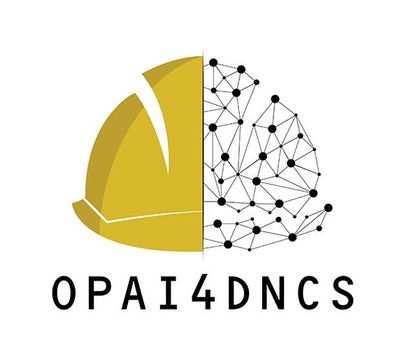
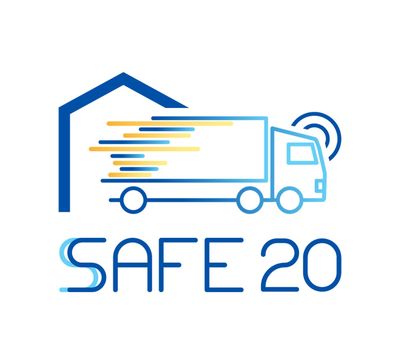
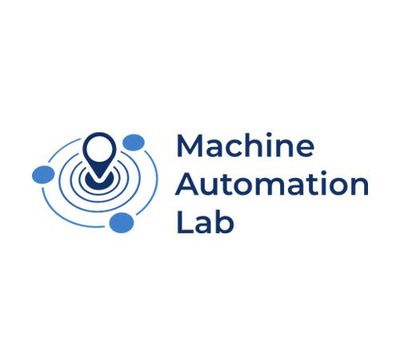
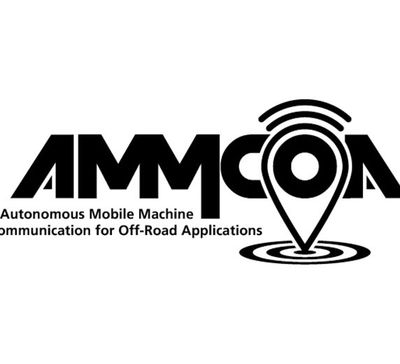





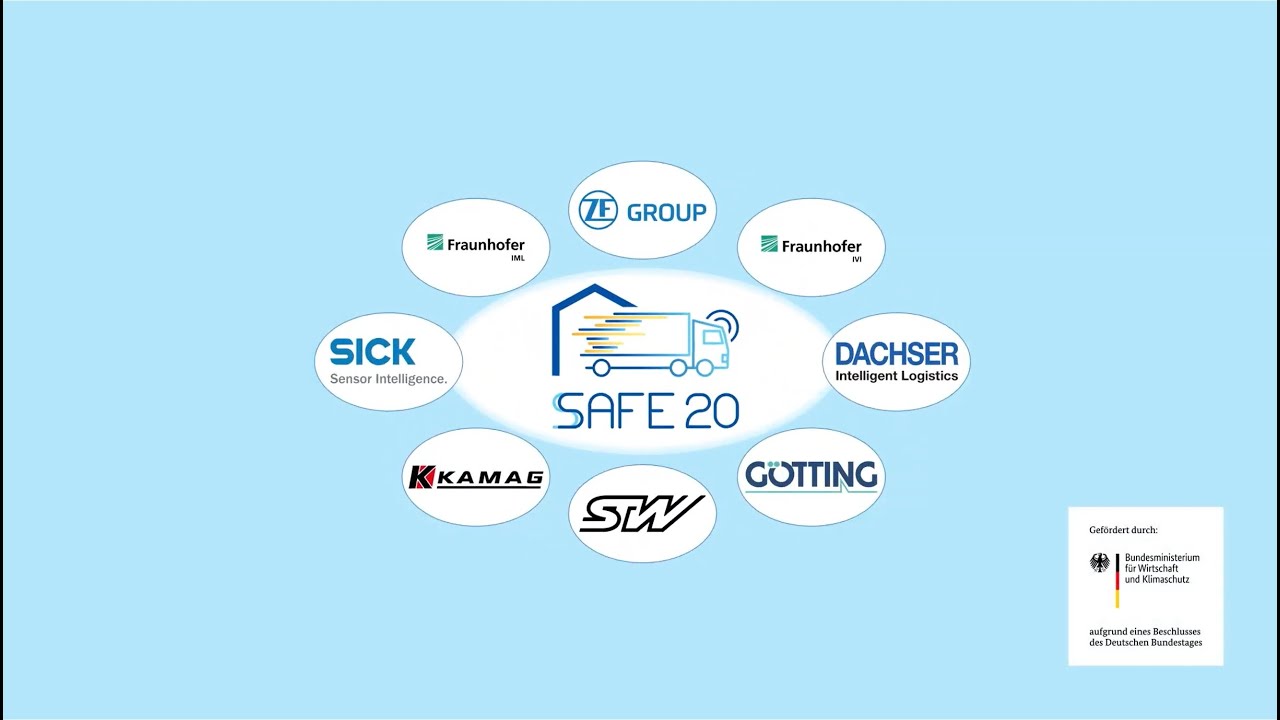
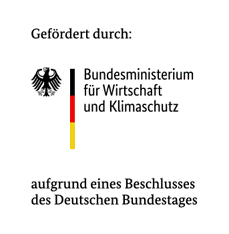

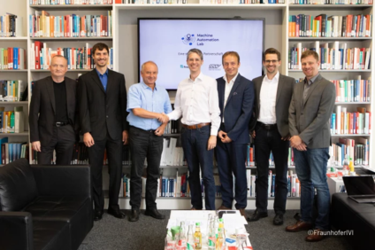
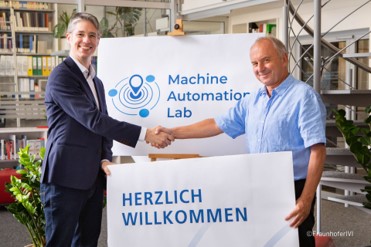
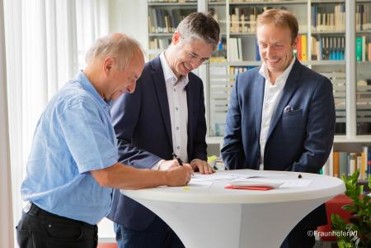

![[Translate to English:] [Translate to English:]](/fileadmin/_processed_/f/4/csm_Logo_41f8d03cbf.jpg)